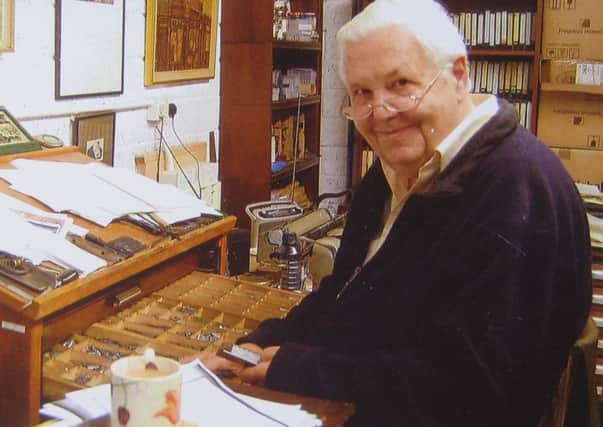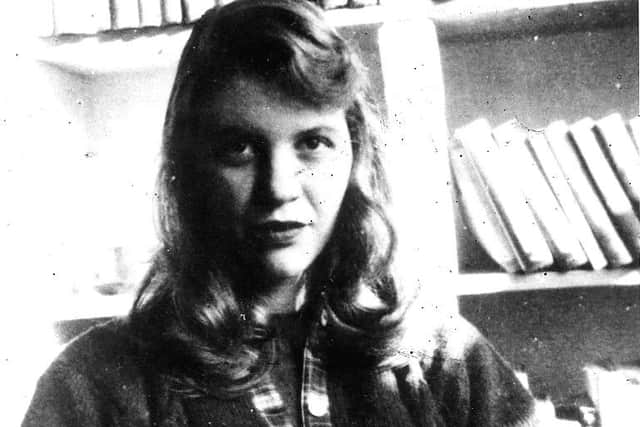Library snaps up rare Sylvia Plath poem first published by Scottish printer


He is a little-known Scottish publisher who worked with a private printing press for more than half a century.
Now the role played by Alan Anderson, a banker turned bookseller, in helping to get Slyvia Plath’s career off the ground is finally being recognised.
Advertisement
Hide AdThe National Library of Scotland has acquired the first work Plath had published in her own right – thanks to an offer of help from Anderson.


Just 60 copies of a four-page pamphlet featuring Plath’s poem, A Winter Ship, were made at his workshop in Edinburgh at her request in 1960.
It is thought the writer sent the poem to family and friends inside Christmas cards.
It was said to have been inspired by the waterfront in her native Boston, where she and husband Ted Hughes were living when she wrote the poem.
The couple had moved to London by the time her pamphlet was published in 1960 by Anderson’s one-man Tragara Press outfit, after Plath had been impressed by proofs he had sent her.
Anderson ended up publishing Plath’s poem after initially writing to Hughes to express his admiration about his work.
Advertisement
Hide AdAfter being sent samples showing how the poem would appear in print, Plath wrote to Anderson, telling him: “I am writing on my own behalf to say how delighted my husband and I were with the proofs of A Winter Ship. I’m sending back the one we like best, with the border round it.
“We thought we’d like the date, place and press in upright letters, as on the other proof, and my name deleted – as I’ll write that on the inside myself, with Christmas greetings too.”
Advertisement
Hide AdThe National Library hopes the acquisition of the poem will raise greater awareness of Anderson, who was still operating his printing press at his home in the Highlands shortly before he died in 2016 at the age of 93.
Born in Fife in 1922, he started his working life as a banker and took up a post with an antiquarian bookseller in Edinburgh after serving in the Royal Navy, before buying his own bookshop.
Anderson would go on to publish an anthology of work by Barry Humphries, the Australian writer and actor best known for creating the character Dame Edna Everage.
Graham Hogg, rare books curator at the National Library, said: “Alan Anderson had a private press so he just did what he wanted and when he wanted. He wasn’t actively going out and touting for work. He was never in it for the money – it was a hobby and a passion for him.
“Alan Anderson mostly published small pamphlets for contemporary poets that he was interested in. He only really printed work that he liked or work for friends.
“This particular one came about when he wrote to Ted Hughes to say how impressed he was by a short story he had written and asked if he had anything else and would be happy to print it. Ted Hughes wrote back to him and said that his wife was writing poetry and asked if he could publish something. I doubt any money would have changed hands at all. They were never intended for public sale.
Advertisement
Hide Ad“It’s very much a curio as she actually sent them out in their Christmas cards. He had sent her two proof copies and she chose the one she liked.”
Born in Boston in 1932, Plath met Hughes in 1956 when she was studying at Cambridge University and they married a few months later. However, they had a tempestuous relationship and after Hughes met another woman in 1962 he split with Plath, who had been troubled with mental illness for years. She took her own life in February 1963.